Bangladesh hopes for a new future.
After the departure of authoritarian leader Sheikh Hasina (76), who was driven to flight by large-scale student protests, the interim government is trying to restore order in Bangladesh . The resulting power vacuum feels shaky, but hope is stronger.
“It can’t get any worse than under the previous government.”
While wearing a Bangladeshi flag headband, Ziya Sharmin Riya who was only 17 years old loudly fired up her friends during a protest in Cox’s Bazaar square.
At another place, in the capital Dhaka, a mural depicting Hasina was pelted with red paint and old shoes. It was dirty and messy.
Massive protests bring casualties, Alif Rahman was one of hundreds killed during protests that forced the country’s autocratic leader. Alif died on Aug 7, two days after he was shot by police at Savar in Dhaka district.
Not only that, in schools, principals with different political views are often replaced. People who are vocal about the government are imprisoned. Freedom of expression is silenced.
Now they proclaim their freedom with murals all over the country.
After the departure of authoritarian leader Sheikh Hasina (76), who was driven to flight by large-scale student protests, the interim government is trying to restore order in Bangladesh . The resulting power vacuum feels shaky, but hope is stronger.
“It can’t get any worse than under the previous government.”
While wearing a Bangladeshi flag headband, Ziya Sharmin Riya who was only 17 years old loudly fired up her friends during a protest in Cox’s Bazaar square.
At another place, in the capital Dhaka, a mural depicting Hasina was pelted with red paint and old shoes. It was dirty and messy.
Massive protests bring casualties, Alif Rahman was one of hundreds killed during protests that forced the country’s autocratic leader. Alif died on Aug 7, two days after he was shot by police at Savar in Dhaka district.
Not only that, in schools, principals with different political views are often replaced. People who are vocal about the government are imprisoned. Freedom of expression is silenced.
Now they proclaim their freedom with murals all over the country.
Ziya Sharmin Riya lead the protest in Cox's Bazaar, Bangladesh.
Hassina mural vandalized by people in Dhaka city.

Ziniya Sharmin in Cox's Bazaar.
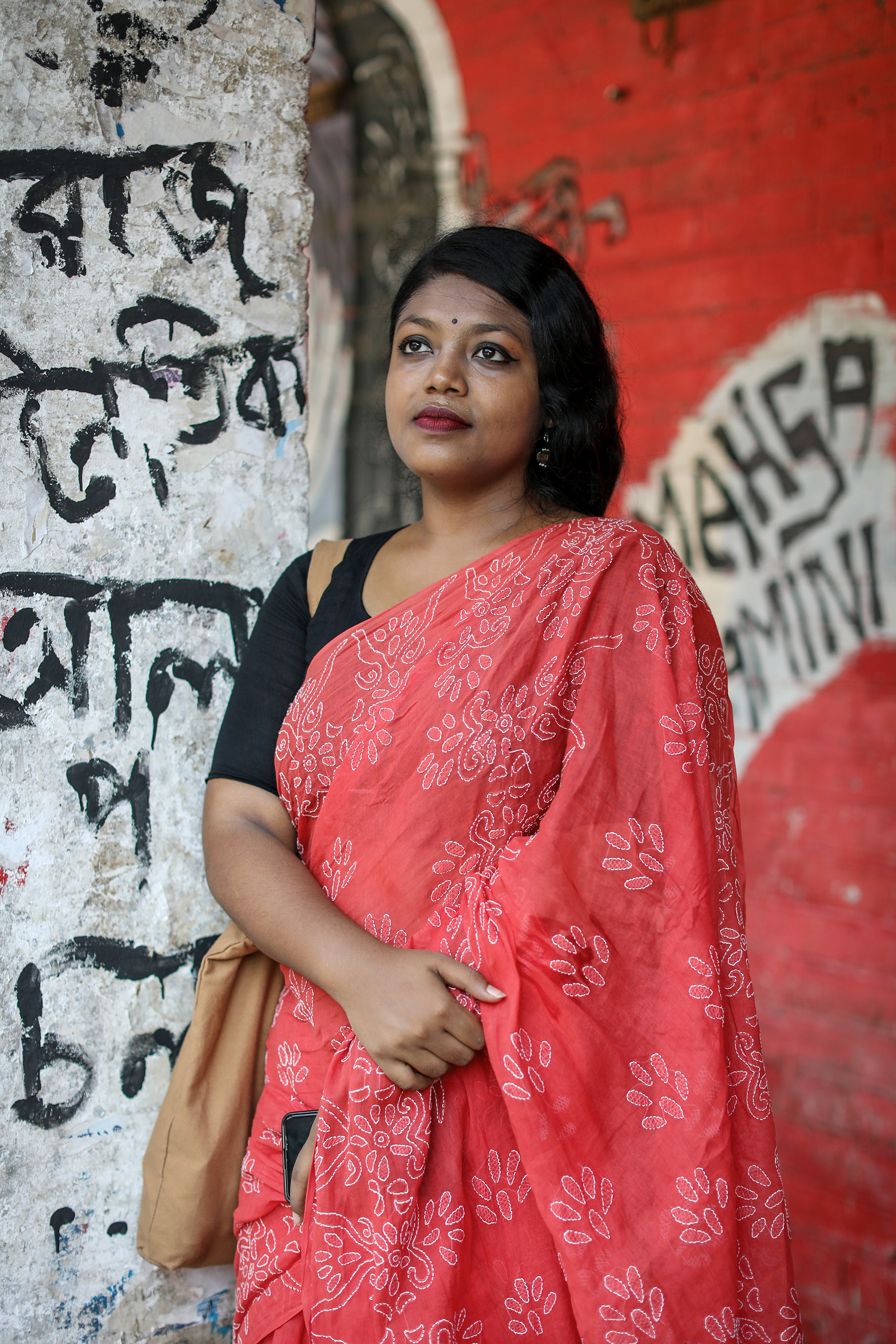
Nusrat Tabassum in Dhaka.
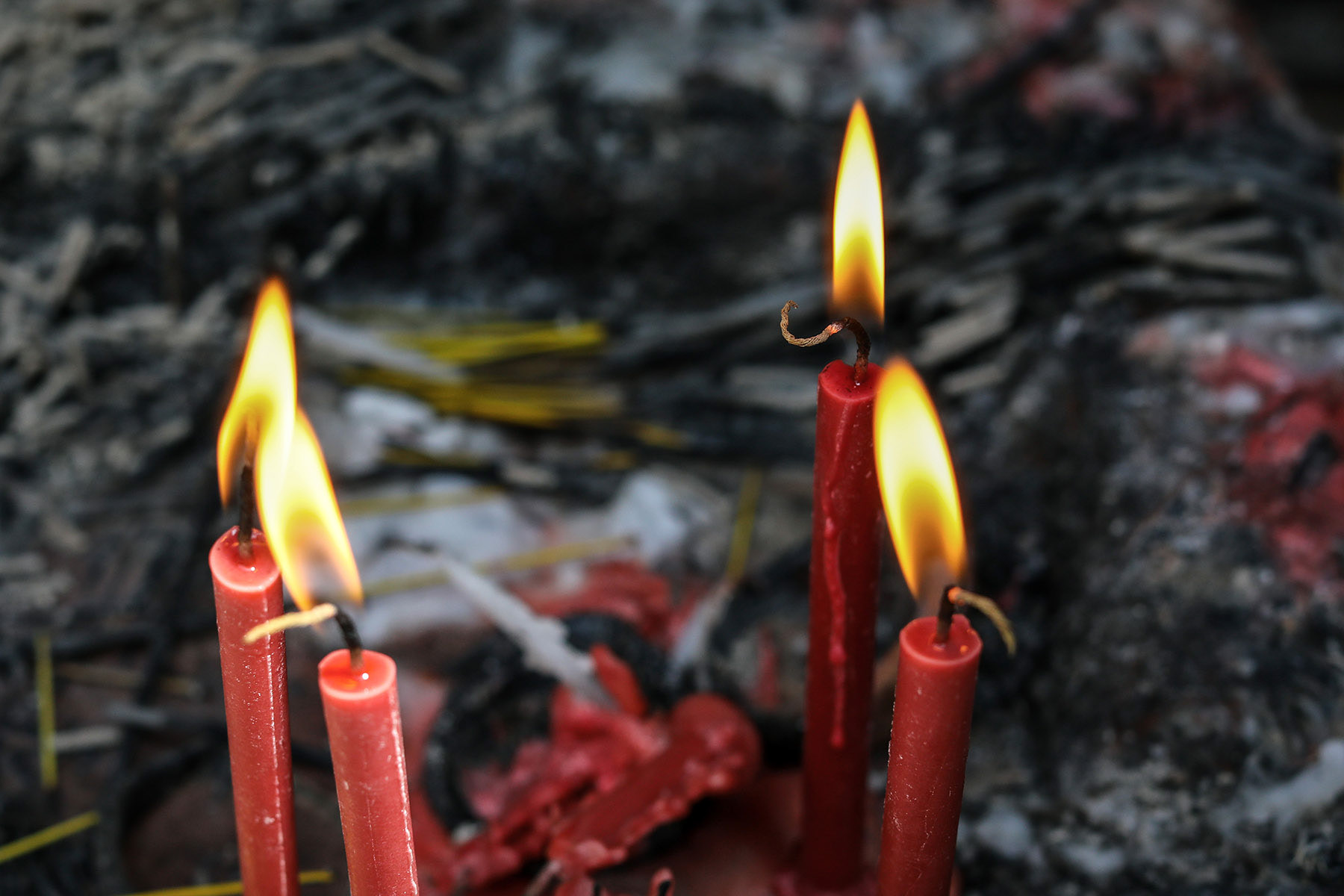
People light candles at a temple in Chittagong city.
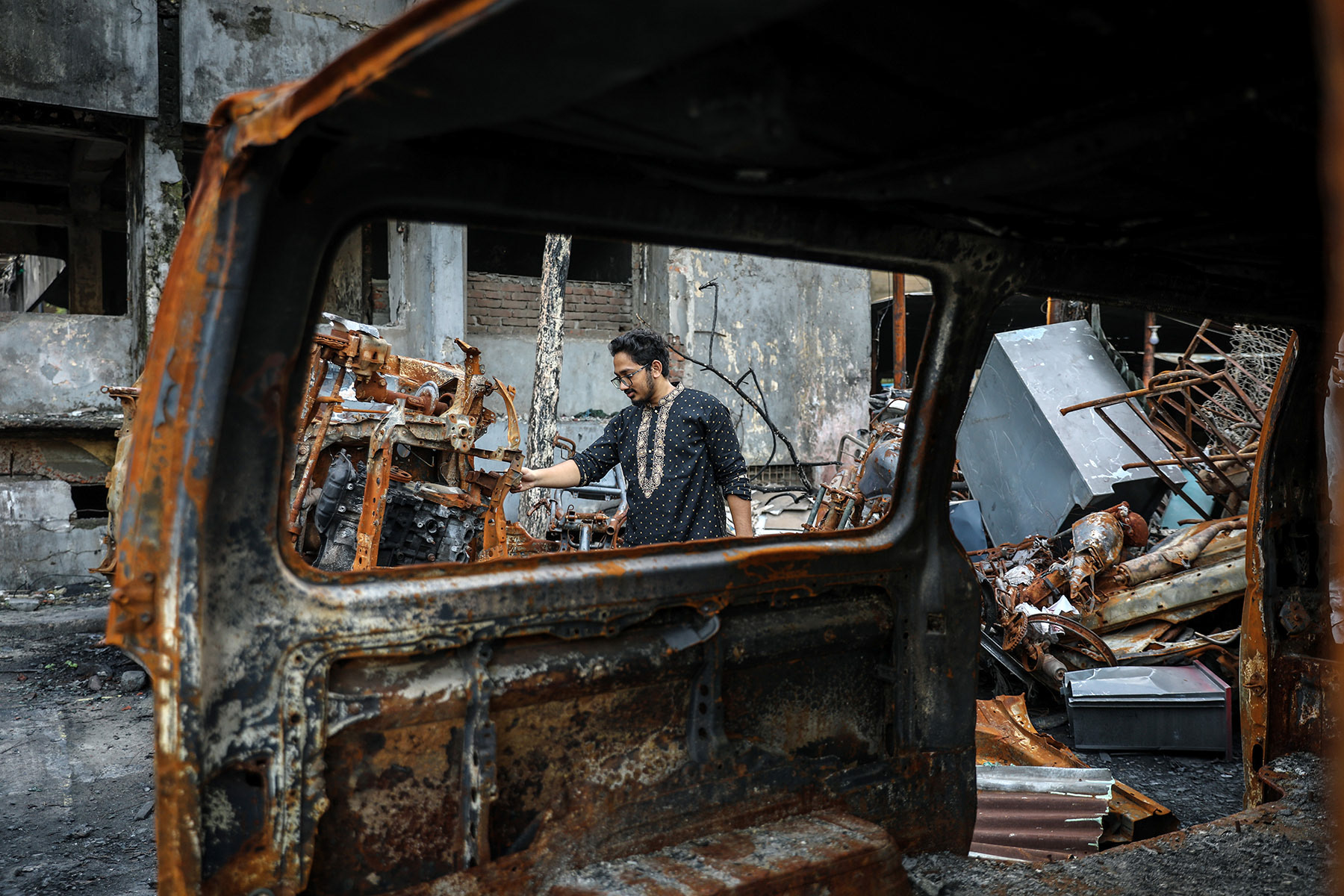
A police station in Dhaka was burned down by a mob.
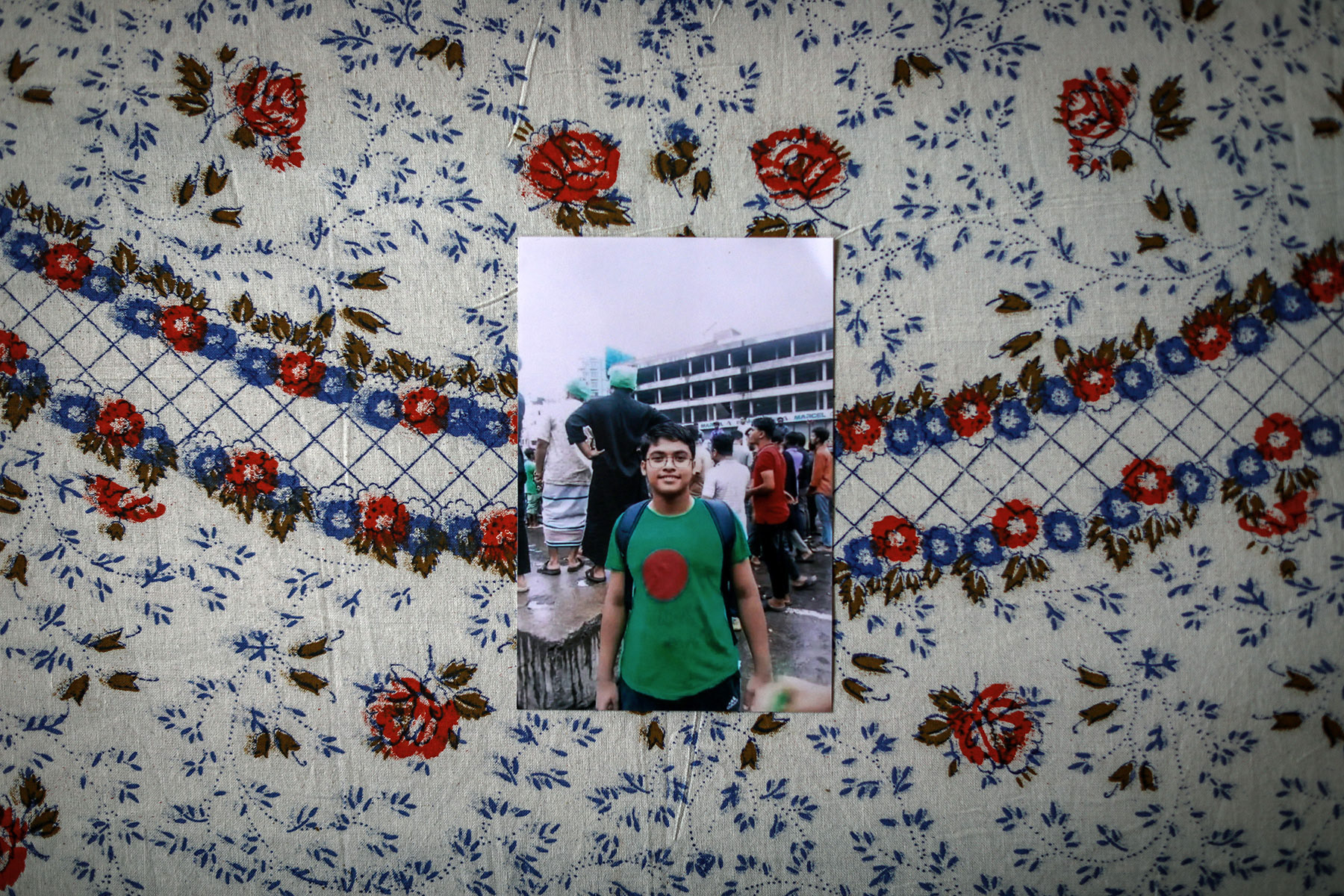
Alif Rahman
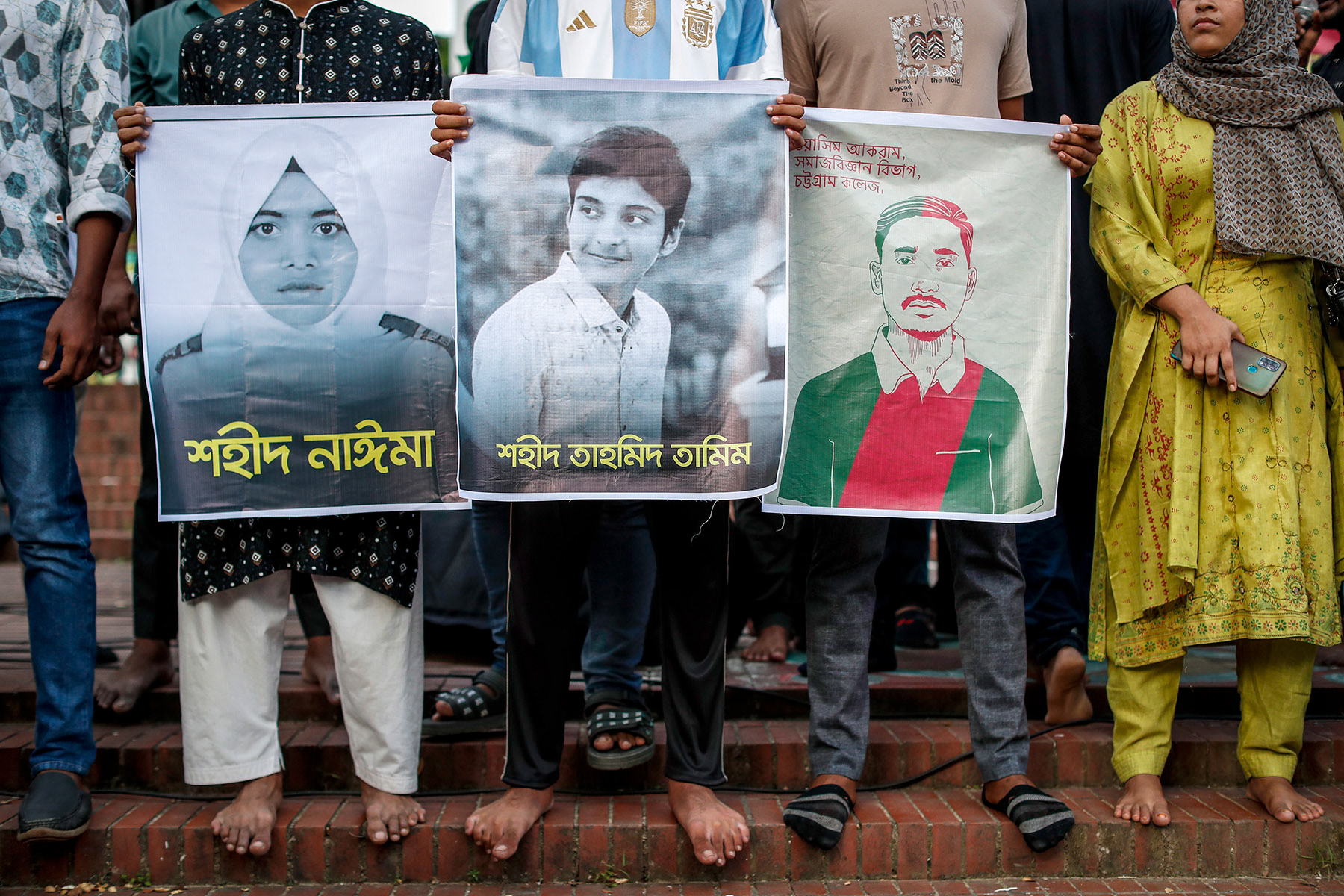
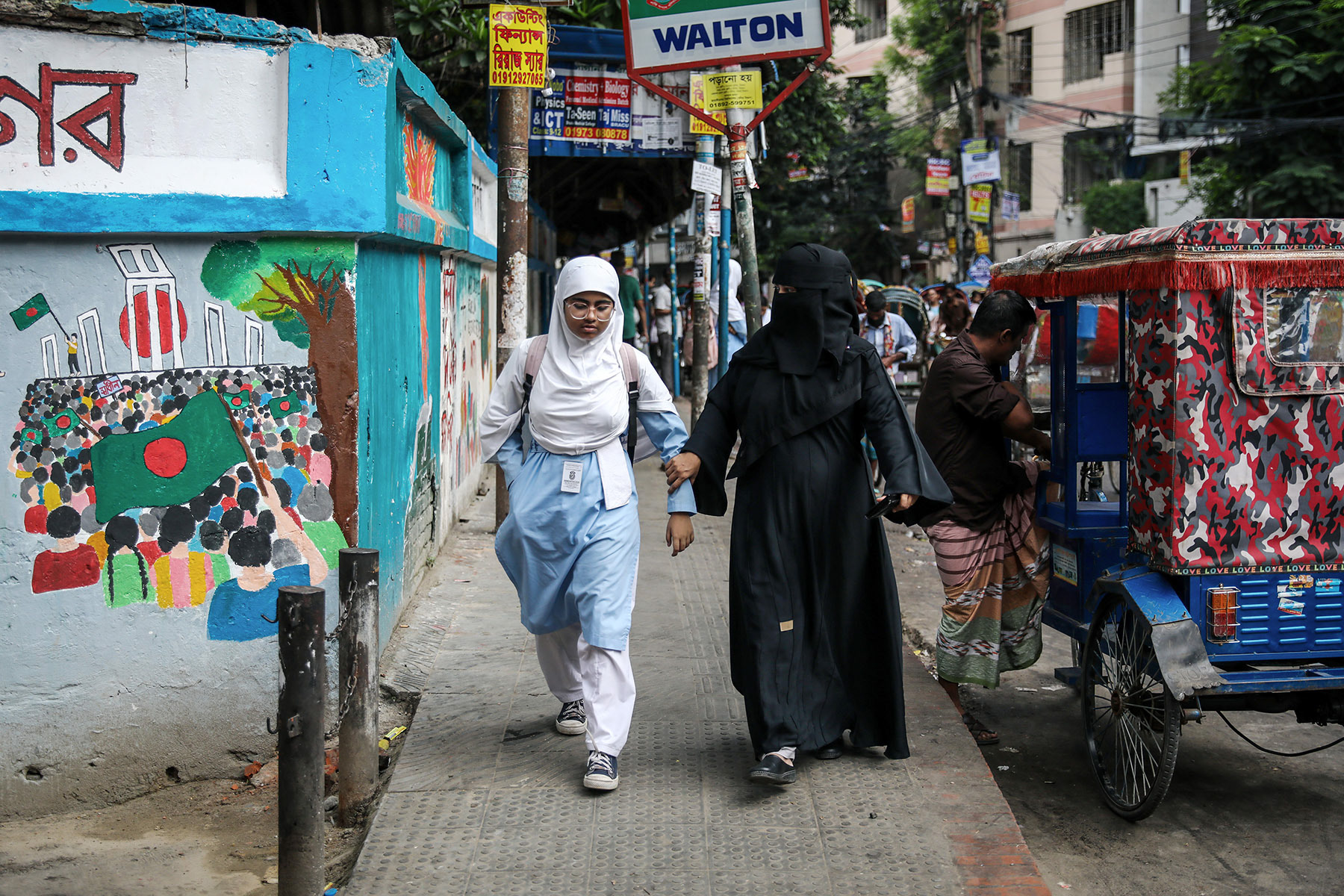
With Iva Venneman for de Volkskrant
